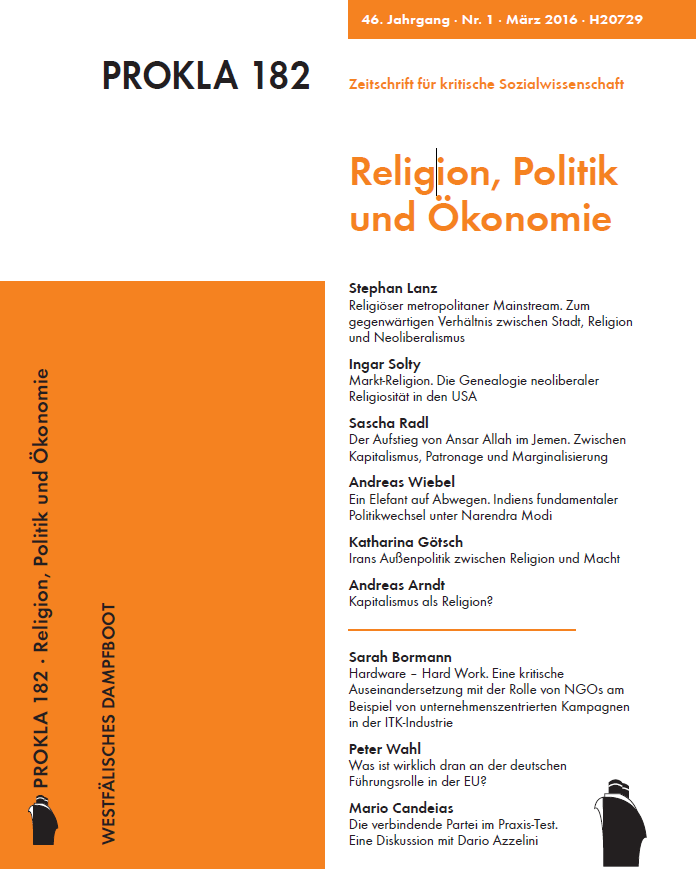Der Aufstieg von Ansar Allah im Jemen.
Zwischen Kapitalismus, Patronage und Marginalisierung
DOI:
https://doi.org/10.32387/prokla.v46i182.100Schlagworte:
Jemen, Sunnismus, Schiismus, Mittelklasse, Öl, Strukturanpassung, Neoliberalismus, Austerität, ReligionAbstract
At first sight, the civil war in Yemen seems to be a sectarian conflict between shia and sunni Islam. In contrast, this article explores the political economy dimensions of the conflict. During the 1970s, the northern Yemen Arab Republic has seen the emergence of a middle class based on foreign remittances, thus increased consumption, economic growth and agricultural modernization in particular. An economic crisis and new oil discoveries in the 1980s lead to a turn-around of the relations between the former powerful middle class and the government which was now able to co-opt the opposition. The subsequent inability to find a solution for the economic problems and the consequences of the reunification in the 1990s lead to externally forced neoliberal structural adjustment, including financial austerity, and as a result to social decline. Ansar Allah provided an alternative order and therefore the group was able to mobilize the middle class in opposition to the regime.






